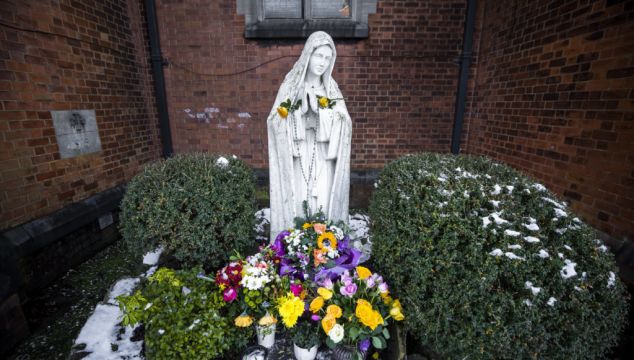There are "no plans" to open up a mother and baby home redress scheme to all survivors, Taoiseach Micheál Martin has said.
As reported in the Irish Examiner, his comments come following a High Court finding that survivors who came forward were treated unlawfully by the commission of investigation.
According to Mr Martin, it is "not for Government" to repudiate the mother and baby homes final report, which has faced extensive criticism.
At present, the redress scheme is open to just 40 per cent of survivors, with campaigners saying the scheme, which was based on the "flawed" report, needs to be re-examined.
Despite calls from campaigners, Mr Martin has strongly defended the scheme. He said it "was not based on commission report" and instead went "significantly beyond it in terms of some of the suggestions that were made by the commission".
"I would say it's a very, very comprehensive redress scheme, it's estimated to cost over €800 million."
When asked if there were any plans to open the redress scheme to children who spent less than six months in these institutions or to consider those who were boarded out, Mr Martin said: "Not at this stage, no."
"But obviously it now has to go to legislation, so that could take the best part of 2022," he added.
"We will engage with the opposition and there will be consultation in relation to it, and we will follow through, and we will obviously take views and take people's opinions on board as we go through the legislative process."
Breach of rights
Before Christmas, the State recognised that the rights of survivors were breached when they were not given a draft of the mother and baby home commission's final report prior to its publication. The High Court declared that eight survivors had their rights breached.
One of the eight survivors, Mary Harney, said the High Court ruling represented a vindication for all survivors of mother and baby homes
Campaigners have called on the Government to repudiate the report entirely.
The Taoiseach has said that commissions of investigation may not be the "ideal" method for such examinations, however he added:"First of all, it's not for Government to repudiate the report."
Mr Martin also mentioned that it was not his Government that set up the commission of investigation, it had been set up by a previous one.
"We have found it very difficult as a society and historically to get the ideal model to investigate the past and different aspects of the past," Mr Martin said.
"Whether the commission of investigation was ideal remains to be seen. That's not casting any aspersions on those who carried out the inquiry, they had to carry it out within the terms of references and within the law laid down.
"Once the commission investigation is established it's absolutely independent of any government and this report stands there."
Speaking about High Court actions, Mr Martin said survivors "weren't given that access [to the draft report] when they should have been given that access."
The Taoiseach also highlighted "groundbreaking" legislation which is being progressed that will allow adopted people to have access to their personal information such as birth certs.
"The main fundamental objective of many of those who were born in mother and baby homes is to have full, unfettered access to data pertaining to their records and that also will now happen, and it's groundbreaking legislation, the kind of legislation that in the past, the Oireachtas was told it couldn't do. But it's being done now," he said.







